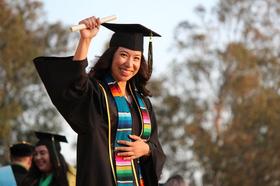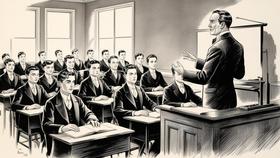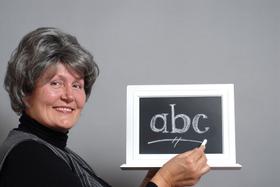Congratulations! You managed to land a place on the interview list. That's significant because interviewing candidates is time-consuming. The school has little time to waste. Now is the time for you to make the best possible impression. Accomplishing that means answering many questions during the interview.
Part of any private school interview process is answering questions that you know will be asked. Having said that, you need to prepare for your interviews with the same care and attention as you give your lesson plans. Think through the entire interview. Imagine the questions being asked. Imagine your answers. Remember: not only does the content have to be the best it possibly can be, but the style and delivery you use must present you in the best possible light.
Some of the more obvious questions include:
- Why do you want to work at St. Swithin's?
- Why do you want to leave St. Hilda's?
- What is the most enjoyable part of your teaching day?
- What books have you read lately?
- When do you plan to finish your master's degree?
Regardless of what the actual questions are or the precise wording is, you must try to figure out why the interviewer is asking the question in the first place. Let's use the questions listed above to give you an idea of the sort of thing an interviewer might be looking for.
Why do you want to work at St. Swithin's?
This question or some variation of it generally is used by interviewers to determine what you know about the school. In other words, you need to have done your research about St. Swithin's. Be familiar with its philosophy, its mission, and its accomplishments. The school's website is the place to start. Just about everything you might need or want to know is going to be there.
A school's website should clearly state what it is all about in words and pictures. If it does not, there's something wrong with the school's marketing department. You must agree with the school's philosophy. If it is a progressive school, be prepared to discuss your approach to teaching and assessment within that context. Tip: keep your red pencil hidden. Wearing your Marine Corps lapel pin would be a smart idea if it is a military school. If you have not been in the military, at the very least, wear an American flag in your lapel if you are male or a similar patriotic-spirited brooch or accessory if you are female.
The point of this question is to determine how you will fit in. It's the same question you, as a parent, might ask when you are looking for private schools for your children. You must get the fit right.
Why do you want to leave St. Hilda's?
This and similar questions are the opposite of the first question. The interviewer is trying to determine why you didn't fit in at your old school. Something wasn't working out, or you wouldn't want to leave. Hopefully, compensation, living conditions, opportunities for advancement, and similar valid, easily understandable reasons for wanting to leave are part of your answer to this question. Beware of the traps, including your leaving because you were dismissed for cause. If you were dismissed or fired, be prepared to handle that upfront before it is even asked about. If there was a personality clash, then explain that calmly and clearly. Never badmouth your current or previous employers. After all, they will be asked for professional references.
What is the most enjoyable part of your teaching day?
Teaching interviews inevitably focus on your passion for teaching and love of your subject. The most enjoyable part of your day better be your time in the classroom, or all bets are off. Schools only want faculty who are passionate about their subject and who love teaching young people. As you develop your response to this question, be careful not to give a canned or plastic response. Just like you customized our resume to match what the school was looking for, do the same thing with your answers to interview questions. One size does not fit all in an interview. Listen carefully to the questions. The interviewer wants to see how nimble, flexible, and responsive you are. That alert quality is so important in the classroom. If you appear disengaged, confused, aloof, or remote, you might as well exit the interview room immediately.
Implicit in the question is the reason why you enjoy that part of your teaching day. As you discuss your reasons, don't be afraid to make mistakes. Every teacher can start down a path and suddenly realize it is wrong. How you recover from that misstep is the essence of true brilliance in teaching.
If you are an experienced teacher with many years under your belt, make sure that you capture some of the eagerness and excitement which you had as a young fledgling teacher in your twenties and thirties. Nobody wants to hire a boring, self-important teacher, no matter how experienced or credentialed she is.
What books have you read lately?
Lurking in the background of this question is the interviewer's desire to know whether you are still an avid learner. Exposing yourself to new ideas, new methods, and new approaches is a critical part of being a teacher. The 21st century is a confusing place. Nothing seems to be predictable. Everything is changing at a rapid pace. The old values and mores you may have grown up with are not in vogue anymore. The interviewer needs to know that you are moving with the times. Always emphasize the positive. You may disagree with many of the changes which have occurred. Unfortunately, you probably will not advance your case by being negative.
Hopefully, you read constantly and widely. Be prepared to rattle off a list of articles and books both related to your work and about more general issues. For example, reading about multiple intelligences is commendable. But having read one of the New York Times bestseller fiction titles speaks volumes about your eclectic tastes in reading.
You might also be asked a variation of the question: "What books are on your Kindle?" This is no time for blank looks. Answer with a short list of the titles which you have downloaded. The interviewer is merely trying to discover how you read. Kindles and iPads make reading very convenient since you have access to your library anywhere. (These electronic devices also are a boon for those of us who find 10-point fonts hard on the eyes. And, after all, what school doesn't have children with vision issues? That's just part of growing up.)
You are an exemplar in the classroom. If you are not reading, how can you honestly ask your students to read?
When do you plan to finish your master's degree?
Continuing education is part and parcel of every good teacher's life and work. If you have done a few courses towards your master's degree, have a plan in place to finish it. Be prepared to discuss that in detail if necessary. Why? Because just about every private school in existence wants to be able to advertise the fact that a large percentage of its faculty have advanced degrees. You will see statements like "More than 80% of our faculty have advanced degrees". A highly skilled faculty is what parents want their children taught by. That's what they are paying for.
If you are an artist, then you might be able to replace the master's degree with exhibits or concerts, depending on your discipline. Once again, private schools are always delighted to be able to trumpet the news that Miss Bletchly will be one of the sculptors featured at the Wadsworth next month or that Mr. Smith performed at Tanglewood last summer.
As we have pointed out so many times in this series of articles on private school employment, take the time to prepare thoroughly. Have a trusted friend or mentor do some role-playing with you. Practice answering the questions. It may take a few attempts before you get them right, but it will be time well-spent. Besides, your competitors will have practiced for the interview. Why shouldn't you? You DO want the appointment, don't you?
Questions? Contact us on Facebook. @privateschoolreview














